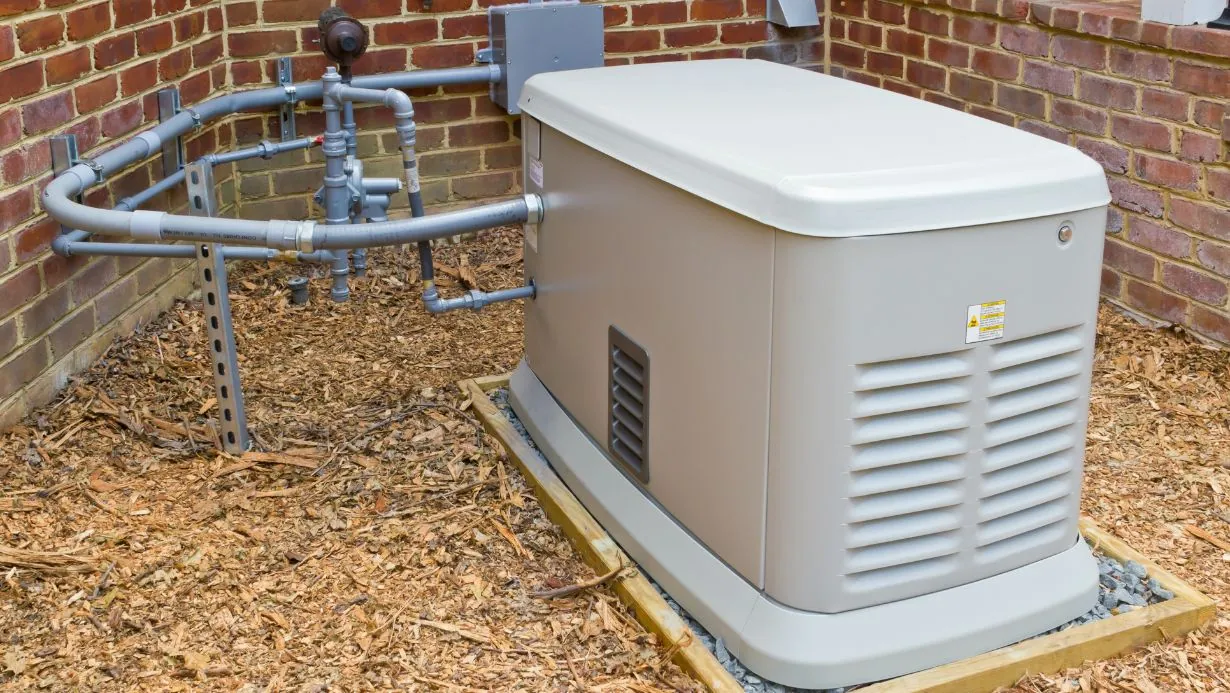The benefits of having electric power at your home are numerous, and it’s natural to crave the security and comfort you enjoy with electricity. The electric grid in the United States is getting more vulnerable, and the best way to remain prepared for anything is with a home power system.
A home power generator provides peace of mind that your lights and appliances will continue working when the grid goes down. Severe weather and power outages won’t stand a chance of affecting your family when you know how to hook up a generator to your house.
The good news is that you’re in the right place to learn more about hooking up a home generator and the benefits your home power system provides. Continue reading to pick and install the best whole-house generator today!
How to Hook Up a Generator to Your House?
It’s best to read the owner’s manual for your power generator before attempting to hook it up to your house. The manual provides step-by-step instructions to hook your generator up and the best safety tips.
Never plug your generator into a wall socket in your home. Plugging your generator into your home’s wall socket is called back feeding, and it’s a dangerous option when using a home power system.
The two common paths to hooking up a generator for your house are the extension cord and the transfer switch. Here’s a closer look at how to hook up your generator using each method.
Extension Cord Method
The first thing to do when connecting a home generator to your home is to consult the manual for a pre-start checklist. Proceed as advised to get the generator running. Before starting your home power generator, move it outside for proper ventilation.
It’s a good rule of thumb to keep your generator at least 10 feet away from any doors or windows in your home. Connect your in-home appliances to your new home power system to keep them running.
One option is to use several extension cords connected to your generator to power multiple appliances in the home. The other choice is to use a GenCord to help you connect various devices with one cable in the home. The last step in hooking up your home to the generator is to start the generator and let the power flow.
The benefit of the extension cord method is its cost-effectiveness. It’s the most affordable way to keep your devices running during a power outage or severe weather. The most significant drawback is the inability to access the full power of your home power system.
The extension cord option is also more hazardous than investing in a transfer switch. When using extension cords, you’ll face potential shocks and fire hazards in the home.
Transfer Switch Method
The transfer switch method provides an alternative to power your home’s lights and appliances during a power outage. It’s the best option when seeking more info on why buy a whole house generator.
It’s wise to have a professional electrician install the transfer switch in your home for a seamless hook-up process. You can start the process by connecting your generator to the home’s transfer switch with the GenCord.
Ensure the generator is outside for proper and safe ventilation for your family. After confirming the generator is outside and 10 feet from the home, start the generator and enjoy the power flowing to your appliances.
Flip the breakers in your transfer switch from “line power” to “generator power.” Determine which circuits you want the power to go to and flip those switches to illuminate your home.
The transfer switch is beneficial because it helps your generator access all its power when you’re experiencing a blackout or power outage. It’s the best option if you want to prioritize safety and ease of use.
Benefits of a Home Power Generator
You’ll experience several benefits for yourself and your family when you spend your hard-earned money on a home generator. Learning how to hook up a generator for your house keeps your family safe and comfortable. It’s a vital investment if you want to remain prepared for anything, and taking a deeper look at the benefits will help you decide if it’s the best option for your home.
Lower Health Risks
A lack of air conditioning can be fatal for family members during summer power outages. Your home power system will ensure you maintain a comfortable and safe environment when the rest of the neighborhood has no power.
The same principle applies to winter power outages resulting from severe weather. Downed power lines are a common issue during winter, and you can stay a step ahead with safety with your power generator.
Lower Expenses
You’ll also protect your home from significant damage when the power goes out during winter storms. Cold temperatures cause pipes to burst. The water flooding your house could cause extensive water damage that takes thousands of dollars to fix.
Summer power outages pose dangers for your refrigerator and spoiled food. Replacing your groceries is costly, and the cleaning required for spoiled food is no one’s idea of a good time.
Appliance Protection
You’ve likely spent plenty of hard-earned money on appliances to make your home a convenient and comfortable living space. You can protect these appliances by purchasing and installing a home power system.
Many appliances are vulnerable to damage when the power comes back after an outage. You’ll prevent damage from the power outage by providing a consistent electrical flow to your appliances. It’s the best way to protect your investment.
